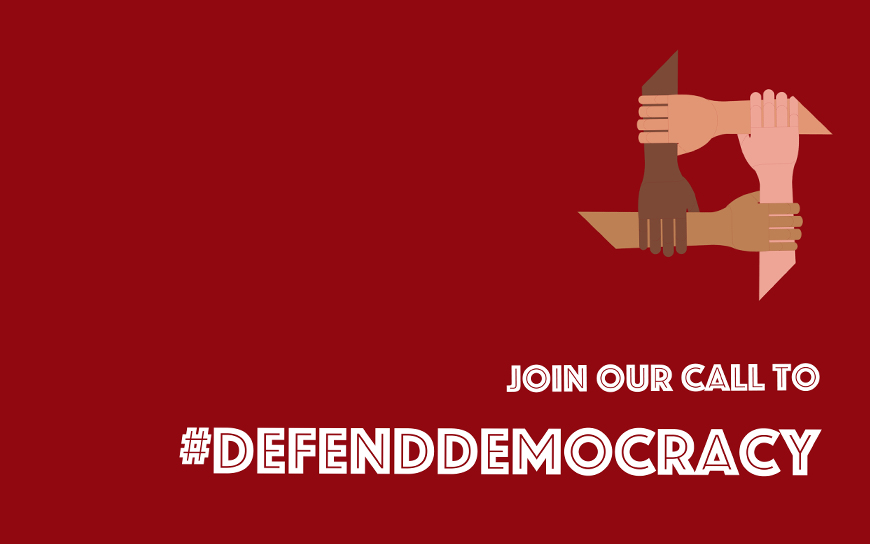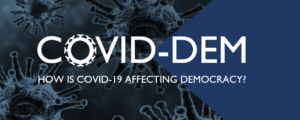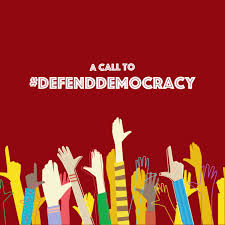 As the coronavirus has spread, many political observers have warned that it is bolstering authoritarianism,* suggesting that a devastating biological virus has translated into a damaging political virus that has markedly eroded the overall state of freedom in the world, say Carnegie Endowment analysts Thomas Carothers and David Wong.
As the coronavirus has spread, many political observers have warned that it is bolstering authoritarianism,* suggesting that a devastating biological virus has translated into a damaging political virus that has markedly eroded the overall state of freedom in the world, say Carnegie Endowment analysts Thomas Carothers and David Wong.
Yet this discouraging near-term political picture becomes less ominous, or at least less clear-cut, if one looks down the road. Many authoritarian and authoritarian-leaning governments have not responded well to the crisis as a result of four key weaknesses, they write in a new analysis, Authoritarian Weaknesses and the Pandemic:
 First and foremost is a penchant for feeble rather than decisive leadership. Authoritarian leaders revel in projecting an image of strength. Some have, in fact, exhibited valuable decisiveness and clarity when confronted with the coronavirus. .. Yet many other authoritarian or authoritarian-leaning leaders have shown startling weakness in facing the pandemic, falling back on deeply ingrained habits of lying to deny inconvenient facts, spin conspiracy theories, and create alternative realities. ..
First and foremost is a penchant for feeble rather than decisive leadership. Authoritarian leaders revel in projecting an image of strength. Some have, in fact, exhibited valuable decisiveness and clarity when confronted with the coronavirus. .. Yet many other authoritarian or authoritarian-leaning leaders have shown startling weakness in facing the pandemic, falling back on deeply ingrained habits of lying to deny inconvenient facts, spin conspiracy theories, and create alternative realities. ..- A second weakness of many authoritarian regimes in confronting the coronavirus is their suspicion or outright hostility toward independent voices and civil society. In recent months, countries such as Algeria, Azerbaijan, Cambodia, Russia, Thailand, and Uzbekistan have passed so-called fake news laws related to the pandemic that criminalize criticisms of their governments’ responses to the public health emergency or even reporting of pandemic conditions that does not match the governments’ preferred narratives….
- A third debility of the pandemic responses of many authoritarian regimes has been the lack of coherence and flexibility in the hierarchy of governance. Effective national public health responses to the pandemic require not just clear, consistent mandates from the top, but integrated approaches in which regional and local authorities can take initiative, adapt responses to local conditions, and report critical information up the line. Yet many authoritarians instead misuse subnational governance as a “flak jacket”—a shield for deflecting responsibility and criticism more than for solving governance challenges.
 Finally, issues with political legitimacy have also hurt some authoritarians’ pandemic policies. The devastating economic effects of lockdown measures have pressured all governments to find a workable balance between public health concerns and citizens’ economic needs. But this challenge is especially difficult for governments that do not enjoy the legitimacy that comes from winning free and fair elections and that instead rely heavily on economic performance as their primary source of popular legitimacy. ….. Alternatively, some regimes also must grapple with the demands of influential societal sectors, even at the expense of delaying the government’s response…RTWT
Finally, issues with political legitimacy have also hurt some authoritarians’ pandemic policies. The devastating economic effects of lockdown measures have pressured all governments to find a workable balance between public health concerns and citizens’ economic needs. But this challenge is especially difficult for governments that do not enjoy the legitimacy that comes from winning free and fair elections and that instead rely heavily on economic performance as their primary source of popular legitimacy. ….. Alternatively, some regimes also must grapple with the demands of influential societal sectors, even at the expense of delaying the government’s response…RTWT
* Authoritarian governments are using the crisis to silence dissent, said a recent open letter signed by more than 500 former world leaders and Nobel Laureates claims. The pandemic poses serious threats to democracy, according to “A Call to Defend Democracy” (above), an initiative of the Stockholm-based International IDEA and the US-based National Endowment for Democracy. The letter is signed by some 73 pro-democracy institutions as well as a roll call of global political and civic leaders, including 13 Nobel Laureates and 62 former heads of state and government.







